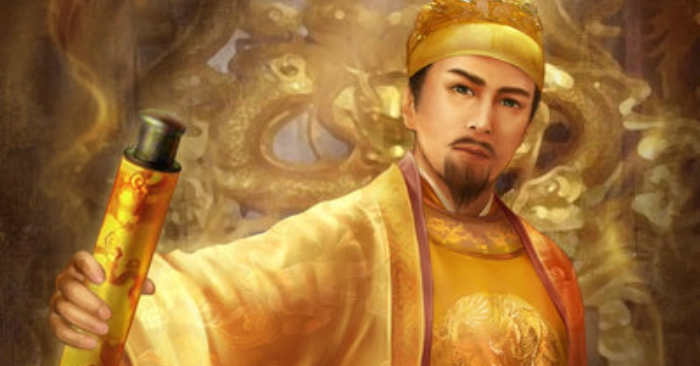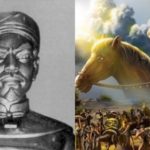The history of Vietnam has many knowledgeable and virtuous kings who have made significant contributions to the country. One of the most respected and beloved kings is King Ly Nhan Tong. He had the longest reign in history, ruling for nearly 56 years, but with no descendants. In particular, he was the founder of the first university in Vietnam.
King Ly Nhan Tong helped Dai Viet thrive and prosper
King Ly Nhan Tong, born in 1066, was the son of King Ly Thanh Tong and Queen Dowager Y Lan. He ascended the throne in 1072 at the age of 6, after the death of his father, King Ly Thanh Tong. During his reign, Ly Nhan Tong focused on culture, education, and the honor of virtuous monks. Under the reign of King Ly Nhan Tong, Vietnam organized the Tam Truong examinations for the first time and established the Quoc Tu Giam.

In the spring of 1075, King Ly Nhan Tong held the Tam Truong examinations (also known as the Ming Jing examinations) to select talented individuals to serve the country. This was the first examination of the Vietnamese education system. The court selected 10 individuals, with the top scholar, Le Van Thinh, being appointed as a teacher to the king.
In 1076, Ly Nhan Tong established the Quoc Tu Giam – the first university in Vietnam, located near the Temple of Literature. Initially, the university was reserved for the king’s children and noble descendants (thus called the Quoc Tu). The Vietnamese historical book, “Viet Su Thong Giam Cuong Muc,” states: “On Binh Thin, in the first month of Anh Vu Chieu Thang 1 (April), the Quoc Tu Giam was established, and talented individuals were selected and enrolled there.”
Ly Nhan Tong also cared about agricultural production and implemented administrative reforms. He issued a decree prohibiting the killing of water buffaloes and bullocks and constructed dikes to prevent floods, most notably the Co Xa dike, which marked the beginning of dike construction in Vietnam to protect the capital from floods. In 1086, he reorganized the administrative system, dividing literary and military officials into nine ranks.
He was also a devoted Buddhist. The king had the Quy Dien bell cast at the Dien Huu Pagoda (One-Pillar Pagoda) – one of the “Four Great Buddha Statues of Annam,” encouraging the construction of temples and the decoration of statues.
King Ly Nhan Tong had a reign of nearly 56 years (1072-1128). With this length of reign, he was the longest-reigning king in Vietnamese history. During his rule, Dai Viet became a strong and prosperous country in the region.
Without a descendant, the king had to appoint his grandchild as the Crown Prince

Although he reigned for a long time, Ly Nhan Tong did not have a son to succeed him. The complete book of Vietnamese history, “Dai Viet Su Ky Toan Thu,” states: “In 1117, the king issued a decree to his royal family, saying: ‘For a ruler who governs the people but has no heir, who should inherit the treasures of the world? Therefore, I will raise the sons of the Duke Sùng Hiền, Thành Khánh, Thành Quảng, Thành Chiêu, Thành Hưng as Crown Princes. At that time, the son of Duke Sùng Hiền, Lý Dương Hoán, was only 2 years old but showed remarkable intelligence. Nhân Tông loved him dearly and appointed him as the Crown Prince.’ After that, Ly Dương Hoán ascended the throne with the title Ly Than Tong and ruled for 11 years after the death of Nhân Tông.
During his long reign, King Ly Nhan Tong implemented many important reforms that brought prosperity and cultural brilliance to Dai Viet. He is considered one of the greatest kings in Vietnamese history.
Examining the Long-Term Impact of the 7th May 1954 Dien Bien Phu Victory
As we mark the 66th anniversary of the victorious battle at Dien Bien Phu on May 7, 1954, it is important to reflect on the monumental impact this event had on the world. Let us take a closer look into the historic significance of this momentous occasion in the Vietnamese people’s struggle for independence.



































